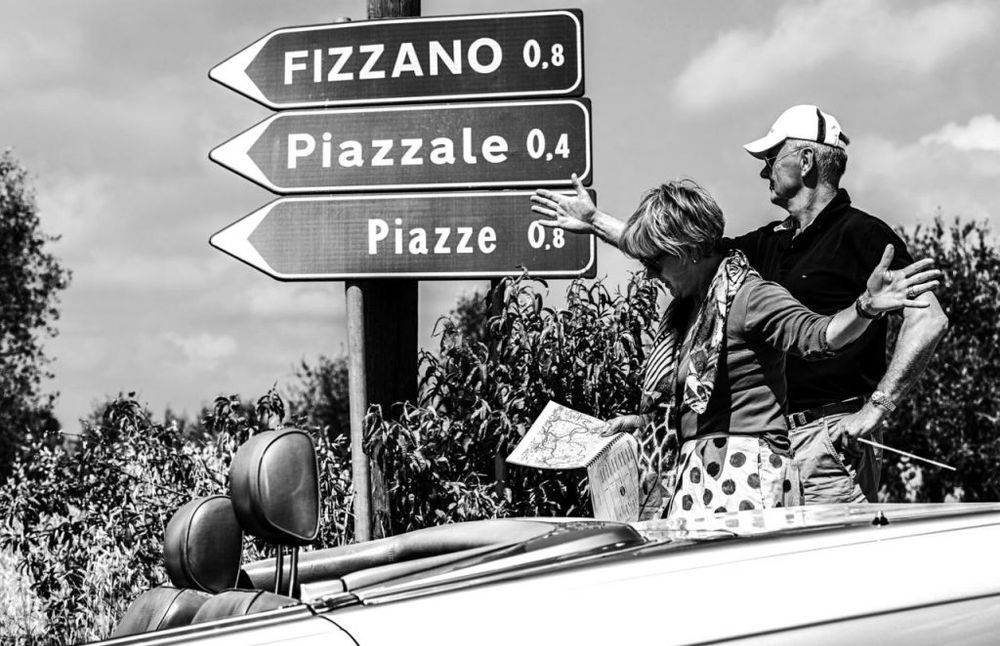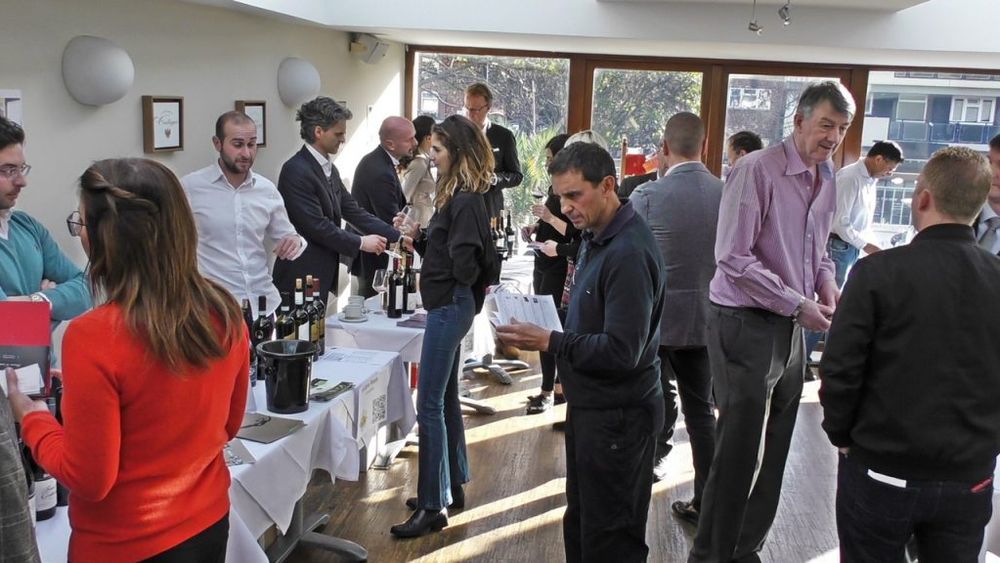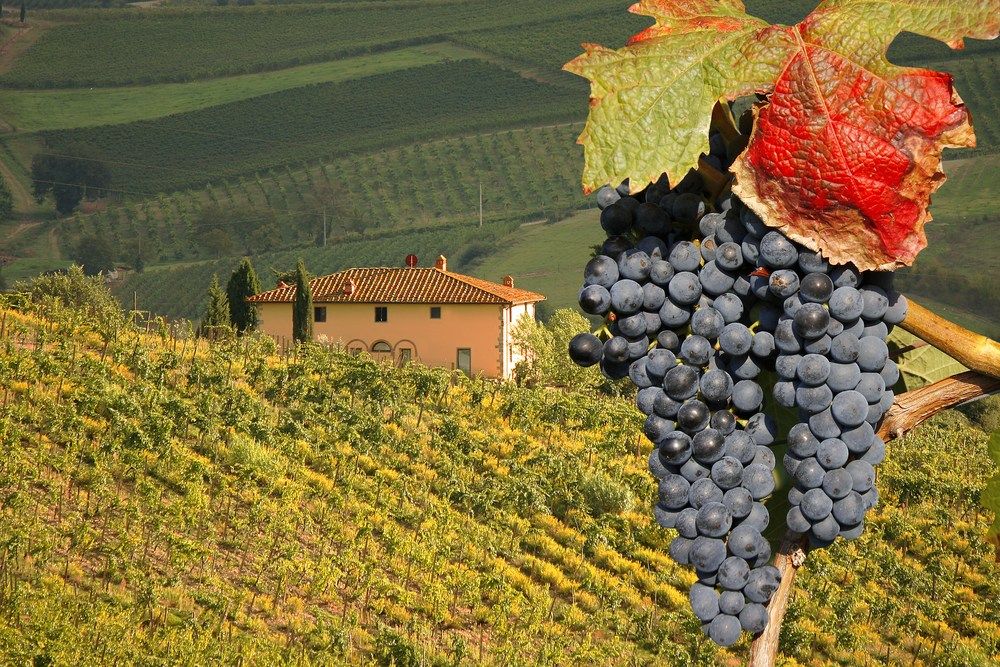With so much focus in the modern, particularly commercial end of the wine industry on varieties, Gordon Stuteley of GS Wines, tackles the terroir vs indigenous variety debate head on.

Gordon Stuteley of GS Wines believes Italy has so many stories to tell for both its terroirs and its indigenous grape varieties.
In the middle of the 20th century, the general standard of Italian wines was not good. Several winemakers dug up their local (autochthonous) grapes and replaced them with well-known international varieties (such as Chardonnay, Cabernet), or better known Italian grapes (e.g. Trebbiano, Sangiovese), believing that the main problem was the quality of the grapes.
Unfortunately, the problem lie more with the viticulture and viniculture and so changing grape varieties was not the solution, resulting in perfectly good native Italian grape varieties being depleted or virtually lost. Over time, the more astute winemakers improved their methods (some continuing with their local grape varieties) and the quality of the wine rose dramatically.
Despite digging up of large areas of local vines, Italy still has about 30% of the total number of grape varieties in the world – there are no exact numbers, but Italy has about 1,100 grape varieties about 450 of which are used in general wine production.
Terroir-driven vs autochthonous grapes

What’s more important to Italy: its regions, or its unique varieties
Some observers see ‘terroir’ as an important concept, when talking about Italian wines pointing to the huge variety of local soil types, terrains, climates etc. But it is something that, the more one looks into, the more questions seem to arise.
A broad definition of ‘terroir’ is offered by Daniele Cernilli (aka Dr Wine): “Terroir is about soil, weather, culture and tradition of the person that makes the wine”. Many winemakers have expressed that, for them, ‘terroir’ is primarily about the soil, microclimate, and location and elevation of their vineyard. In terms of quality and taste, there are some experts who claim that “terroir is all”.
This sort of view has led many winemakers to claim their wines are ‘terroir-driven’, and that their wine somehow expresses the best qualities that their land can impart to the wine.
However, other observers (such as Ian d’Agata, respected author on Italian grapes and wines) point to the wealth of local grape varieties that no other country possesses and the huge variety of aromas and flavours that these grapes can deliver, and that the future for Italian wineries is to harness the potential of this treasure-house of grapes.
The more you look into the idea of ‘terroir’ and how and whether wines do display a sense of the place where they come from, the more difficult it seems to grasp. My initial reaction to the term ‘terroir-driven’ is it sounds like a marketing concept. However, having spoken to a number of wine experts and winemakers, I can see some tangible ideas coming out.
The central idea seems to be about letting the land ‘speak’ – that is, allowing the nature of the environment to express itself in the wine. How this is applied by each winery can vary significantly: some would see it as doing simple things such as not altering the nature of the soil by adding aggressive chemicals; some see it as matching the grape variety to the general terrain; some have moved to organic farming to try to make the land as ‘natural’ for grape growing as possible. There is quite a difference in their approaches to expressing their ‘terroirs’.
Try for yourselves
Italy has a vast resource in its autochthonous grapes. A few Italian grapes are almost as well known as the great international varieties (e.g. Sangiovese, Primitivo). But most consumers have never heard of the majority of them. Even grape varieties that are getting a bit of a foothold (e.g. Falanghina, Pecorino) are not really household names – which poses a challenge for Italian wineries, who wish to sell theml to the UK.

The GS Wines team at the first Italian Wine Journey tasting held at London’s Fish Central.
This is a challenge we are happy to take on next week at our Italian Wine Journey tasting in London on July 4. At this event, we are fortunate to have several Italian wines of outstanding quality, mainly from small family-run wineries – and including some very interesting autochthonous grape varieties.
We will examine the concept of terroir in relation to high quality Italian wines, many made from less well known indigenous grape varieties (e.g. Vite dei Fantini, Mornasca, Erbaluce, Vespolina, Marzemina Bianca, Gruaja, Pignolo, Solaris – plus from Umbria, Grechetto and Sagrantino) plus some better known and international varieties (e.g. Nebbiolo, Chardonnay),including some superb Franciacorta wines (from Lombardy) made from Chardonnay, Pinot Noir and Pinot Bianco.
The Masterclasses will be led by myself and Loris Propedo, wine buyer and area development manager at Mondial Wine. Whilst tasting some of these wines and hearing how the wineries see the relationship between their ‘terroir’ and the quality and taste of their wine, we will ask the question “Does the future for Italian wine lie in a ‘Terroir-driven’ approach or in revisiting and exploiting indigenous grapes?”
- For more details about the An Italian Wine Journey Edition 2 tasting taking place at Fish Central, 149-155 Central Street, London EC1V 8AP click here.
- GS Wines selects, imports and sells high quality Italian wines, mainly from small family-run wineries, throughout Italy.
































